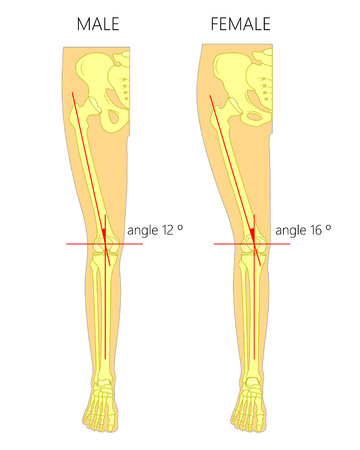Understanding Lymphoedema within the UK Cancer Care Pathway
Lymphoedema is a significant concern for many cancer patients across the United Kingdom, often emerging as a long-term complication following cancer treatment. Within the UK context, it is estimated that tens of thousands of individuals are living with lymphoedema, with breast, gynaecological, and head and neck cancers being particularly associated with its onset. The prevalence of this condition reflects not only the success of cancer therapies in prolonging life but also highlights the ongoing challenges faced by survivors as they navigate recovery.
The causes of lymphoedema among UK cancer patients are multifaceted. Surgery, radiotherapy, and lymph node removal or damage can disrupt normal lymphatic drainage, resulting in swelling, discomfort, and a heightened risk of infection. These physical symptoms are often compounded by emotional and psychological impacts, including anxiety, altered body image, and social isolation. For many, managing lymphoedema becomes a daily reality requiring both medical intervention and personal adaptation.
Within the NHS framework, there is growing recognition of the need for comprehensive lymphoedema care as part of holistic cancer rehabilitation. NHS guidelines emphasise early identification, prompt intervention, and patient-centred management strategies to optimise outcomes and quality of life. However, access to specialised lymphoedema services can vary depending on locality and resource allocation, presenting unique challenges for some communities across England, Scotland, Wales, and Northern Ireland.
Patient experiences further illuminate these complexities. Many individuals report delays in diagnosis or limited awareness about lymphoedema amongst healthcare professionals outside specialist teams. This can lead to feelings of uncertainty or frustration as they seek support and guidance. At the same time, peer support networks and patient advocacy groups have become invaluable sources of information and encouragement for those affected.
In understanding lymphoedema within the UK cancer care pathway, it is essential to recognise both the clinical realities and lived experiences of patients. By doing so, healthcare providers can better tailor interventions that address not only the physical manifestations but also the emotional and social dimensions of this condition.
Early Identification and Assessment of Lymphoedema
Lymphoedema is a progressive condition often associated with cancer treatment, notably following lymph node removal or radiotherapy. Early identification and assessment are crucial in mitigating the impact on patients’ quality of life and supporting effective rehabilitation. Recognising the early signs and symptoms allows healthcare professionals to initiate timely interventions, reducing the risk of complications.
Recognising Signs and Symptoms
British healthcare practitioners are encouraged to be vigilant for subtle changes in patients at risk. Common early indicators include:
| Sign/Symptom | Description |
|---|---|
| Swelling | Persistent or intermittent swelling, particularly in the limbs, which may worsen as the day progresses. |
| Heaviness | A feeling of heaviness or tightness in the affected area, often reported before visible swelling occurs. |
| Skin Changes | Tight, shiny, or pitting skin; sometimes accompanied by redness or warmth. |
| Reduced Mobility | Stiffness or decreased flexibility in the affected limb or region. |
| Sensory Changes | Tingling, numbness, or discomfort not explained by other causes. |
The Importance of Early Intervention
Timely recognition and intervention can significantly improve outcomes for individuals living with or at risk of lymphoedema. Early-stage management focuses on education, gentle exercise, and skin care, aiming to prevent progression and empower patients to actively participate in their own care. British guidelines highlight the value of a multidisciplinary approach involving physiotherapists, occupational therapists, and lymphoedema specialists within both NHS and community settings.
Assessment Tools Familiar to British Practice
Consistent assessment is vital for identifying lymphoedema in its earliest stages. Healthcare professionals commonly use a combination of clinical tools:
| Tool/Method | Description |
|---|---|
| Circumferential Measurement | Measuring limb girth at set points to detect swelling over time; simple and accessible in most clinical environments. |
| Bioimpedance Spectroscopy (BIS) | A non-invasive tool offering early detection by measuring extracellular fluid changes before visible swelling occurs. |
| Limb Volume Calculation | Utilises water displacement or perometry devices to assess volume differences between limbs. |
| Patient-Reported Outcome Measures (PROMs) | Structured questionnaires capturing patient perspectives on symptoms and functional impact (e.g., LYMQOL). |
Patient-Centred Language and Communication
A compassionate approach is essential when discussing lymphoedema risks and management with patients. Utilising plain language—such as “swelling” instead of “oedema”—and providing clear explanations about self-monitoring fosters trust and encourages early reporting of changes. This aligns with the NHS’s person-centred care model, ensuring individuals feel heard, respected, and involved throughout their cancer rehabilitation journey.

3. Conservative Management and Self-Care Strategies
Conservative management remains the cornerstone of lymphoedema care for individuals navigating cancer rehabilitation in the UK. These strategies emphasise gentle, holistic approaches that empower patients to take an active role in their recovery. Below, we detail essential components, each tailored to foster confidence and independence within a compassionate and supportive framework.
Skin Care: Safeguarding Against Complications
Meticulous skin care is vital in preventing infections such as cellulitis, which can exacerbate lymphoedema symptoms. Patients are encouraged to maintain daily gentle cleansing routines using fragrance-free products, patting the skin dry rather than rubbing. Moisturising with non-perfumed creams helps preserve the skin’s natural barrier, particularly important given the UKs often brisk climate. Regular checks for cuts, insect bites, or fungal infections enable early intervention, significantly reducing complications.
Exercise: Gentle Movement for Lymph Flow
Physical activity, adapted to individual abilities, is highly recommended for those living with lymphoedema. UK-based guidelines advocate low-impact exercises such as walking, swimming, or simple stretching routines. Gentle movements stimulate lymphatic drainage while supporting overall well-being and emotional resilience. Many local NHS trusts offer group classes or physiotherapy support, creating opportunities for social connection and peer encouragement—integral to holistic rehabilitation.
Compression Therapy: Personalised Support
Compression garments play a crucial role in managing swelling and supporting lymph flow. In the UK, patients are often fitted by specialist nurses or lymphoedema therapists to ensure the correct size and type—whether sleeves, stockings, or wraps—based on individual needs and comfort. Ongoing education about donning techniques and garment care is key; regular reviews guarantee optimal fit as body changes occur during cancer recovery.
Patient Education: Empowerment Through Knowledge
Empowering patients through clear information forms the heart of British lymphoedema care. Educational sessions—delivered face-to-face or via digital platforms—cover self-monitoring techniques, risk reduction strategies, and guidance on when to seek medical advice. By fostering understanding and confidence, healthcare professionals help individuals feel more in control of their journey, reducing anxiety and promoting long-term self-management.
A Compassionate Approach to Self-Management
Above all, effective conservative management integrates clinical expertise with compassion and empathy. UK clinicians recognise the emotional impact of lymphoedema; they provide reassurance alongside practical advice, ensuring every patient feels heard and supported throughout their rehabilitation journey. This approach not only addresses physical needs but nurtures hope and resilience at every stage of recovery.
4. The Role of Multidisciplinary Teams in Lymphoedema Care
In the UK, the management of lymphoedema within cancer rehabilitation is increasingly recognised as a collaborative effort, with multidisciplinary teams playing a pivotal role. The National Health Service (NHS) has fostered an environment where various specialists work together to offer holistic and person-centred care. This approach ensures that individuals living with lymphoedema receive comprehensive support, addressing not only their physical symptoms but also their emotional wellbeing and social needs.
The Importance of Collaboration
Effective lymphoedema care relies on seamless communication and coordination among NHS consultants, community nurses, physiotherapists, occupational therapists, and carers. Each professional brings unique expertise to the table:
| Team Member | Key Contribution |
|---|---|
| NHS Specialist (Consultant) | Diagnosis, overall treatment planning, medical reviews |
| Community Nurse | Day-to-day management, wound care, patient education |
| Physiotherapist | Personalised exercise programmes, manual lymphatic drainage, mobility support |
| Carer (including family) | Practical assistance at home, emotional encouragement, monitoring daily changes |
Coordinated Support Pathways
A key strength of the UK’s approach lies in its coordinated support pathways. Regular multidisciplinary meetings allow team members to discuss patient progress and adjust interventions as needed. These meetings ensure that care remains tailored to each individual’s evolving needs—whether that involves adjusting compression therapy or exploring new self-management strategies. Digital health records within the NHS facilitate this process by enabling real-time information sharing across the care team.
Caring Beyond the Clinic
Lymphoedema management extends well beyond clinical appointments. Community nurses play a vital role in bridging hospital and home care, supporting patients as they adapt to daily life with lymphoedema. Carers and family members are encouraged to engage in training sessions provided by local NHS trusts or voluntary organisations like Lymphoedema Support Network (LSN). This empowers them to provide safe and effective assistance while fostering a sense of partnership in the rehabilitation journey.
Together, these multidisciplinary efforts create a supportive network for individuals with lymphoedema—helping them maintain independence, confidence, and quality of life throughout their cancer rehabilitation.
5. Latest Innovations and Technological Advances in the UK
In recent years, the UK has witnessed significant progress in the management of lymphoedema, particularly within cancer rehabilitation. Driven by a commitment to person-centred care and supported by the NHS, several digital health tools and technological innovations are now available to support patients and clinicians alike. One of the most promising advancements is the integration of remote monitoring applications, allowing individuals living with lymphoedema to track their symptoms, access self-management resources, and communicate directly with their healthcare team. These digital platforms not only promote patient empowerment but also enable more proactive and responsive care.
Research initiatives across leading British institutions have further enriched our understanding of lymphoedema, fostering evidence-based approaches tailored to the unique needs of cancer survivors. The UK Lymphoedema Society, in collaboration with universities and NHS Trusts, is pioneering studies exploring new compression technologies, wearable devices for limb measurement, and innovative diagnostic imaging techniques. These developments are helping to refine early detection methods and optimise treatment pathways.
Within the NHS framework, access to such innovations is gradually expanding. Multidisciplinary lymphoedema clinics are increasingly incorporating technology into routine practice—for example, using telehealth consultations for rural patients or introducing electronic patient records that ensure continuity of care between oncology teams and lymphoedema specialists. Furthermore, public health campaigns now make use of online platforms to raise awareness, reduce stigma, and connect those affected with peer support groups.
The journey towards comprehensive lymphoedema care in the UK is ongoing, with a growing focus on equitable access regardless of geography or socioeconomic status. By embracing these latest innovations, the NHS continues its tradition of gentle stewardship—ensuring that everyone living with cancer-related lymphoedema receives compassionate support alongside cutting-edge care.
6. Breakdown of Barriers: Equity and Access to Lymphoedema Services
Ensuring equitable access to lymphoedema services remains a pressing concern within cancer rehabilitation across the UK. The challenge is especially pronounced when considering the diverse needs of urban, rural, and underserved communities. Disparities in service provision, awareness, and support can result in significant differences in patient outcomes and quality of life.
Current Challenges Across Communities
In urban areas, patients may benefit from proximity to specialist centres and a broader range of healthcare professionals. However, even within cities, barriers such as socioeconomic status, language differences, and cultural beliefs can impede access to appropriate care. In contrast, individuals living in rural or remote regions often face longer travel distances, limited local resources, and fewer lymphoedema-trained clinicians. This geographical disparity can delay diagnosis and hinder timely intervention, potentially leading to poorer health outcomes.
Underserved Populations: A Closer Look
Underserved communities—including those experiencing social deprivation, ethnic minorities, and older adults—often contend with additional obstacles such as limited health literacy and reduced awareness of lymphoedema management options. These groups may be less likely to seek help early or know where to find specialist support. Addressing these barriers requires tailored public health messaging and community engagement strategies that resonate with specific populations.
Strategies for Enhancing Equity
The NHS and allied organisations are exploring ways to bridge these gaps through initiatives such as telehealth consultations, mobile clinics, and targeted outreach programmes. Training more healthcare professionals in lymphoedema care—particularly in primary settings—and increasing funding for community-based services are essential steps forward. Collaboration between charities, local authorities, and healthcare providers is also vital to amplify impact and ensure no one is left behind.
Looking Ahead: Future Directions
As we move forward, it is crucial to continue advocating for policy changes that prioritise equity in lymphoedema services. Embracing digital innovations while maintaining personal, compassionate care will help reach those who might otherwise be missed. By working collectively to identify and dismantle barriers—whether structural or attitudinal—we can nurture a future where every person affected by lymphoedema receives timely, effective support regardless of their postcode or background.
7. Supporting Emotional Wellbeing and Quality of Life
Lymphoedema is not only a physical challenge for those living with or beyond cancer—it can also significantly affect emotional wellbeing and overall quality of life. The persistent swelling, changes in body image, and limitations in daily activities may lead to feelings of frustration, anxiety, or isolation. Addressing these psychological and social impacts is an essential part of comprehensive cancer rehabilitation in the UK.
Recognising the Emotional Impact
It’s important to acknowledge that living with lymphoedema can bring about a range of emotions, including sadness, loss of confidence, and worry about the future. Many individuals may feel self-conscious about their appearance or frustrated by limitations on their usual routines. In the UK, cancer care teams are increasingly aware of these challenges and strive to provide compassionate support as part of standard rehabilitation services.
Recommendations for Emotional Support
Open communication is key—patients are encouraged to share their feelings with trusted members of their healthcare team. Clinical nurse specialists, counsellors, and psychologists working within NHS cancer services offer confidential spaces to discuss worries and develop coping strategies. GPs can also signpost local mental health resources tailored for people affected by cancer and lymphoedema.
The Value of Peer Groups
Connecting with others who understand the unique experiences of living with lymphoedema can be incredibly beneficial. Across the UK, there are local and national peer support groups such as those facilitated by Macmillan Cancer Support and Lymphoedema Support Network (LSN). These groups provide safe environments to share stories, exchange practical tips, and build friendships that foster resilience and hope.
Accessing Resources within UK Services
The NHS offers a range of emotional wellbeing resources integrated into cancer rehabilitation pathways. Services like Maggie’s Centres provide drop-in psychological support, workshops, and activities designed to uplift spirits while managing the day-to-day realities of lymphoedema. Online forums and helplines from charities such as Breast Cancer Now also ensure help is available outside regular appointments.
Empowering Individuals to Thrive
Supporting emotional wellbeing goes hand-in-hand with promoting independence and dignity. By accessing available resources, engaging in supportive communities, and seeking guidance from specialist teams, individuals can find renewed confidence. Holistic approaches that address both mind and body remain central to high-quality lymphoedema care throughout the UK—ensuring everyone has the opportunity to live well despite the challenges they may face.

